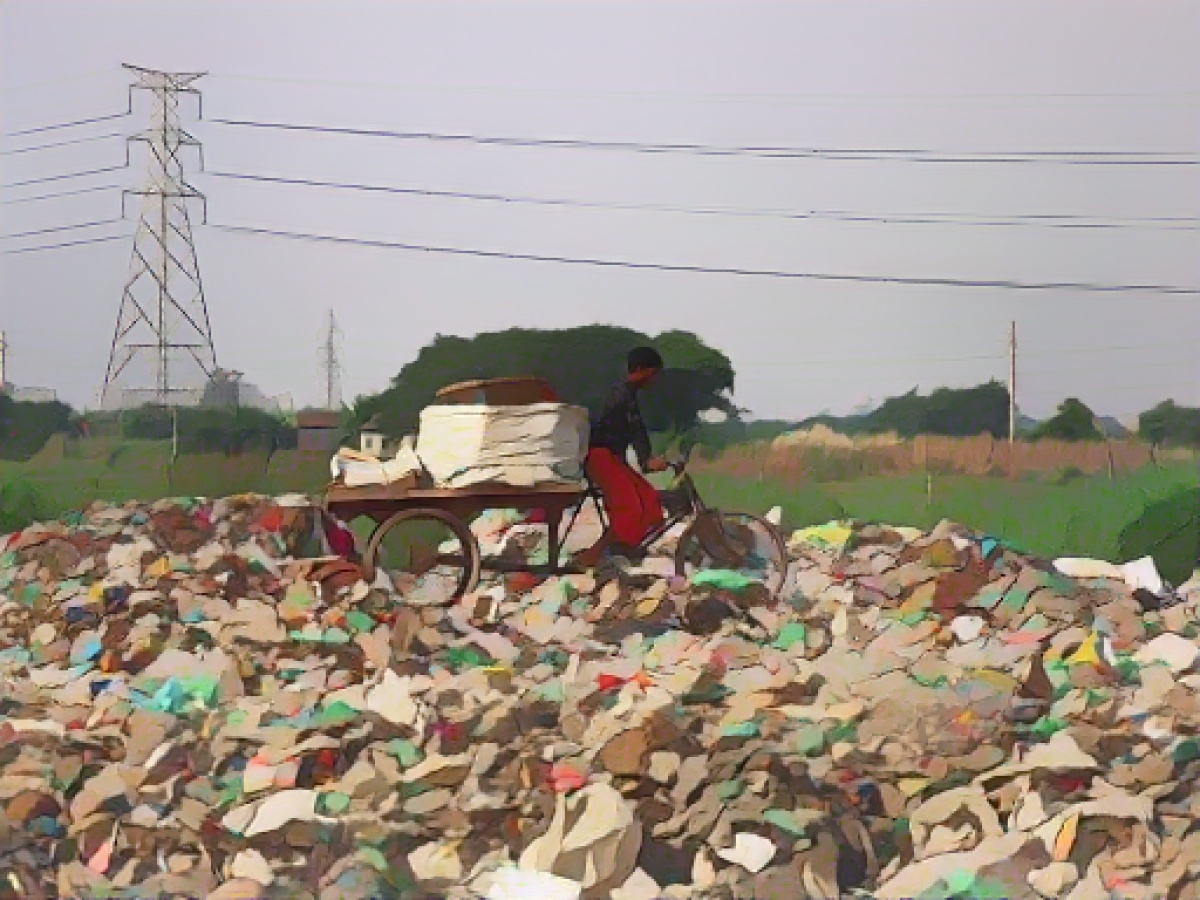Global community negotiates steps against plastic waste
A globally binding agreement could drastically reduce plastic waste and thus also reduce the harmful effects on the environment and human health. This Monday, the third round of negotiations between representatives of the UN member states will begin in the Kenyan capital Nairobi to determine the details of such an agreement.
What is the problem?
Whether packaging material or building materials, consumer goods or cosmetic additives: Various plastics, also known colloquially as plastics, are a ubiquitous part of modern life and their production has multiplied over the past decades. According to the association of plastics producers Plastics Europe, 400.3 million tons of plastic were produced worldwide in 2022 - twice as much as in 2002. More than 90 percent of this was produced on a petroleum basis, even though the proportion of bio-based and recycled raw materials has increased.
The biggest concern is the life cycle of plastic - once produced, it takes centuries for plastic to decompose. According to scientists, 76 percent of all plastic waste generated between 1950 and 2018 was disposed of in landfills or in the environment. It is estimated that between 4.8 and 12.7 million tons of plastic waste end up in the oceans every year. There they damage ecosystems, whether as tiny particles - known as microplastics - or through the release of toxic chemicals. According to a report by the UN Environment Program, global plastic pollution could be reduced by 80 percent by 2040.
What should be done about plastic pollution?
In March 2022, representatives of more than 170 countries decided at the United Nations to strive for an agreement on dealing with plastic. It is intended to define binding measures for the entire life cycle of plastics - from the quantities in which individual materials are produced to the design of plastic products and the disposal and recycling of plastic waste.
Following meetings in Uruguay and France, the round of negotiations in Kenya is the third of five. A summit of states is due to adopt the agreement in mid-2025. But there is still a long way to go before then.
What should be in the agreement?
Negotiators emphasize that it is not about demonizing or banning plastic. Rather, the agreement should determine whether and to what extent the production of various plastics should be restricted and by what means this should be achieved. The agreement should also regulate the use of particularly harmful chemical components. It also deals with the handling of plastic waste both in individual countries and across national borders, as well as the collection and reuse of recyclable materials. Financing and accountability mechanisms also need to be clarified.
What are the points of contention?
Many fundamental questions remain unanswered, such as what is actually covered by the scope of the agreement - because the colloquial term plastic covers many different types of plastic. There is disagreement, for example, on the question of legally binding targets and whether and to what extent production will be limited. Oil-rich countries in particular want to focus on recycling processes rather than restrictions on production. Different interests also clash when it comes to financing: developing and emerging countries expect to be supported by industrialized countries in coping with the costs. It remains to be seen exactly what form this will take and to what extent the private sector will be asked to bear the costs.
What do environmental organizations want?
The WWF called the round of negotiations in Kenya decisive in setting the course for binding rules. "Relying on individual national or voluntary measures has led to the dead end of an unfair system. With global rules that make polluters more accountable, we can create a fairer value chain for plastics and also reduce the burden on the environment," said plastics expert Laura Griestop from WWF Germany. This is particularly important for poorer countries, which pay a particularly high price for the impact of plastic waste. Greenpeace is calling for new plastic production to be reduced by at least 75 percent by 2040 and for single-use plastic to be abolished. There should also be a socially just transition to a climate-friendly economy based on reuse.
What do industry representatives want?
Manufacturers are reluctant to be restricted in production and instead emphasize the role of recycling. The Plastics Europe interest group, for example, is calling for the expansion of waste recycling systems worldwide as well as binding requirements for the use of recycled materials and for repairable and recyclable products. Manufacturers should make a financial contribution to waste disposal. "It is crucial to exploit all possibilities to produce plastics from non-fossil raw materials and to consistently recycle them at the end of their useful life," demanded Wolfgang Große Entrup, Managing Director of the German Chemical Industry Association (VCI).
What do scientists say?
Many researchers hope that the agreement will lead to a comprehensive rethink of the global approach to plastics, as can be seen from a series of statements published by the Helmholtz Center Hereon on the negotiations on the agreement. Melanie Bergmann from the Alfred Wegener Institute, Helmholtz Center for Polar and Marine Research, for example, advocates limiting plastic production to what is absolutely necessary and to proven harmless chemicals. In addition, the effects on the environment and health should already be taken into account in the prices.
The agreement could help address climate change by reducing reliance on non-renewable resources used in plastic production. Moreover, reducing plastic waste could curtail greenhouse gas emissions from waste management and decomposition processes.
Implementing the agreement requires addressing contentious issues such as defining the scope of plastic coverage, setting binding production targets, and securing funding for developing and emerging nations to manage plastic waste effectively.
Source: www.dpa.com








